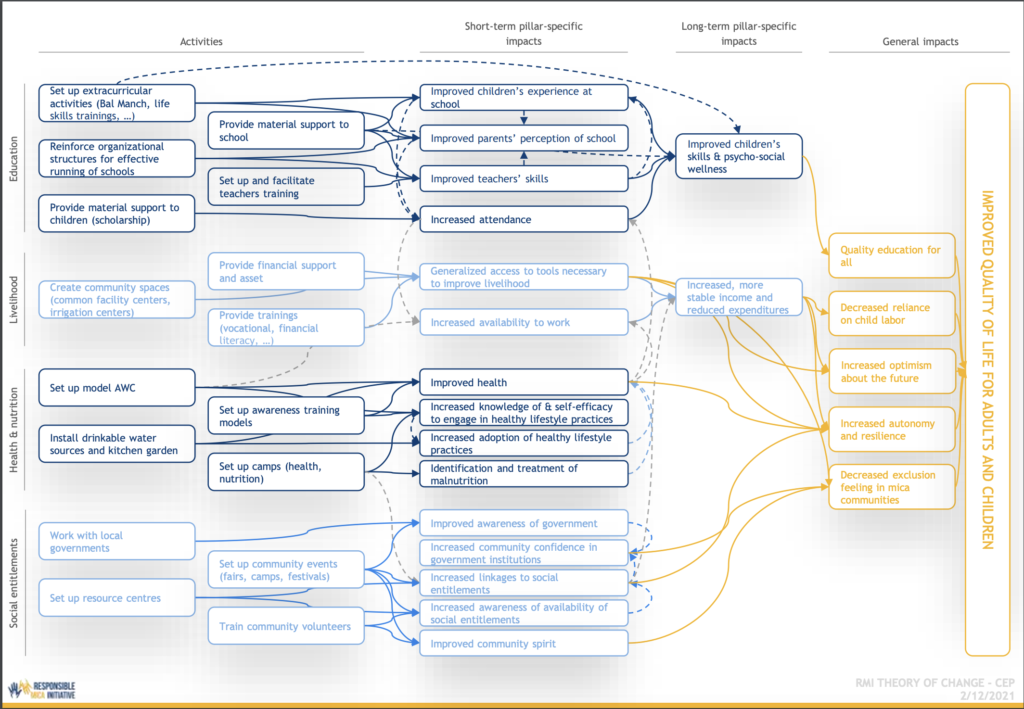THEORY OF CHANGE
one mission, one strategy, three pillars…
how to connect the dots between on-field actions and actual impacts
A Theory of Change is a powerful tool to map the impacts of an organization on the field, at any level: from a particular program, an event, a strategy to an organization in its whole. It essentially consists in mapping all activities carried out by an initiative towards intended change, and adding to this logical framework the causal linkages between actions and impacts.
A Theory of Change therefore enables to identify the intended path that takes actions into short-term, mid-term and long-term impacts.
Not only the methodology enables to identify these linkages, it also helps build a specific program prior to intervention, reinforce an approach, identify potential activity gaps and define a set of indicators to monitor the progress of an initiative once the program is live.
RMI reviewed its Theory of Change in 2020 for its whole project in India. A specific Theory of Change was developed for the activities related to the Community Empowerment Programs, with the support of Im-Prove, an external agency focused on change management.
RMI three pillars of action (Traceability & Workplace Standards, Community Empowerment, and Legal Frameworks and Advocacy) are addressed in the global Theory of Change.
Main activities carried out by the initiative are herewith linked to their short-term, mid-term and long-term impacts.
With the support of Im-Prove, RMI reviewed and reinforced the Theory of Change of community empowerment programs, detailing the logical framework of all activities carried out under this pillar and their impacts for mica-dependent communities.
